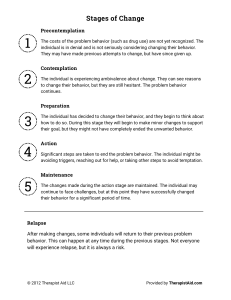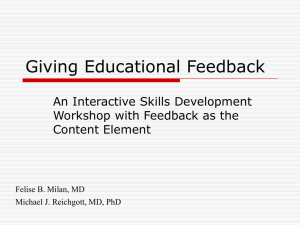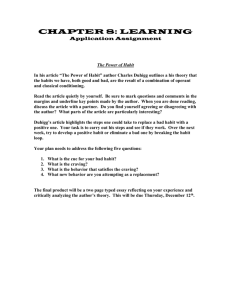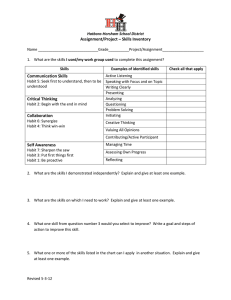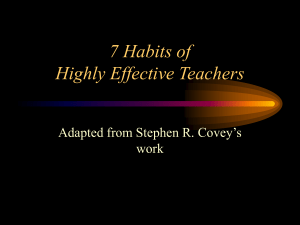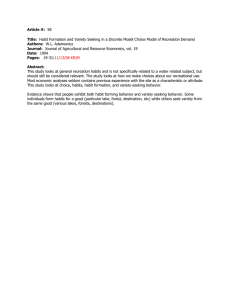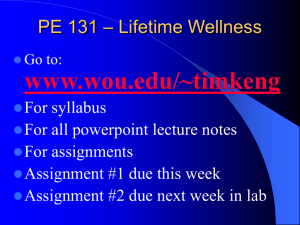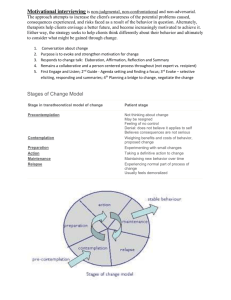Document 13102306
advertisement
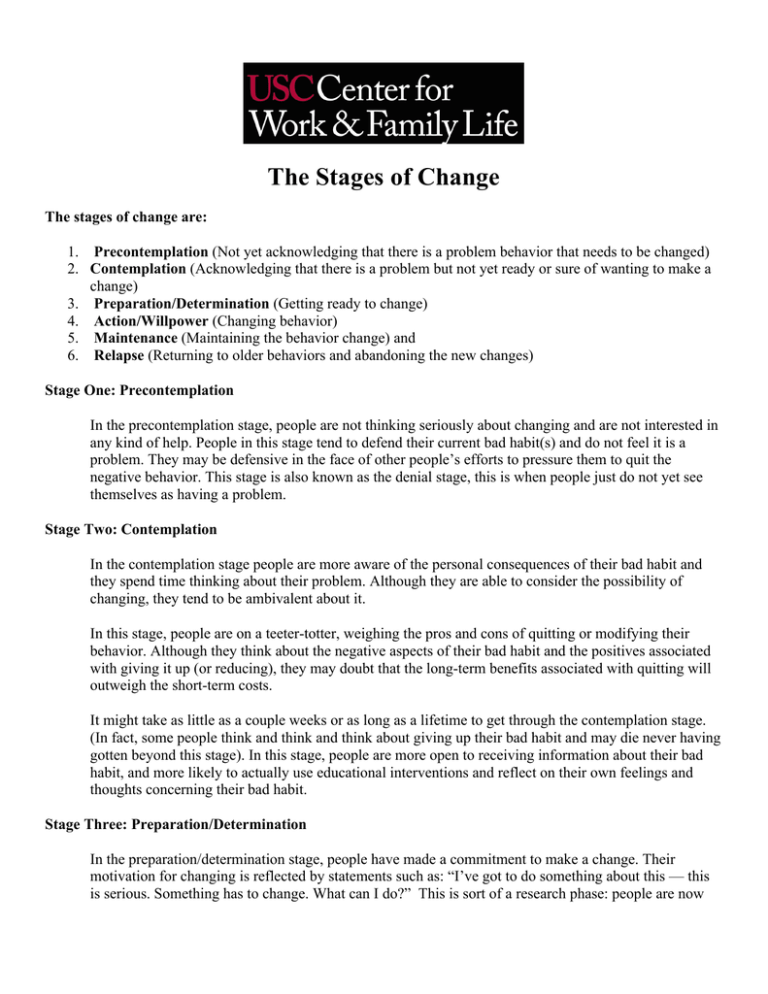
The Stages of Change The stages of change are: 1. Precontemplation (Not yet acknowledging that there is a problem behavior that needs to be changed) 2. Contemplation (Acknowledging that there is a problem but not yet ready or sure of wanting to make a change) 3. Preparation/Determination (Getting ready to change) 4. Action/Willpower (Changing behavior) 5. Maintenance (Maintaining the behavior change) and 6. Relapse (Returning to older behaviors and abandoning the new changes) Stage One: Precontemplation In the precontemplation stage, people are not thinking seriously about changing and are not interested in any kind of help. People in this stage tend to defend their current bad habit(s) and do not feel it is a problem. They may be defensive in the face of other people’s efforts to pressure them to quit the negative behavior. This stage is also known as the denial stage, this is when people just do not yet see themselves as having a problem. Stage Two: Contemplation In the contemplation stage people are more aware of the personal consequences of their bad habit and they spend time thinking about their problem. Although they are able to consider the possibility of changing, they tend to be ambivalent about it. In this stage, people are on a teeter-totter, weighing the pros and cons of quitting or modifying their behavior. Although they think about the negative aspects of their bad habit and the positives associated with giving it up (or reducing), they may doubt that the long-term benefits associated with quitting will outweigh the short-term costs. It might take as little as a couple weeks or as long as a lifetime to get through the contemplation stage. (In fact, some people think and think and think about giving up their bad habit and may die never having gotten beyond this stage). In this stage, people are more open to receiving information about their bad habit, and more likely to actually use educational interventions and reflect on their own feelings and thoughts concerning their bad habit. Stage Three: Preparation/Determination In the preparation/determination stage, people have made a commitment to make a change. Their motivation for changing is reflected by statements such as: “I’ve got to do something about this — this is serious. Something has to change. What can I do?” This is sort of a research phase: people are now taking small steps toward cessation. They are trying to gather information (sometimes by reading things like this) about what they will need to do to change their behavior. Too often, people skip this stage: they try to move directly from contemplation into action and are not successful because they haven’t adequately researched or accepted what it is going to take to make this major lifestyle change. Stage Four: Action/Willpower This is the stage where people believe they have the ability to change their behavior and are actively involved in taking steps to change their bad behavior by using a variety of different techniques. This is the shortest of all the stages. The amount of time people spend in action varies. It generally lasts about 6 months, but it can literally be as short as one hour. This is a stage when people most depend on their own willpower. They are making overt efforts to quit or change the behavior and are at greatest risk for relapse. Mentally, they review their commitment to themselves and develop plans to deal with both personal and external pressures that may lead to slips. They may use short-term rewards to sustain their motivation, and analyze their behavior change efforts in a way that enhances their self-confidence. People in this stage also tend to be open to receiving help and are also likely to seek support from others (a very important element). Stage Five: Maintenance Maintenance involves being able to successfully avoid any temptations to return to the bad habit. The goal of the maintenance stage is to maintain the new status quo. People in this stage tend to remind themselves of how much progress they have made. People in maintenance constantly reformulate the rules of their lives and are acquiring new skills to deal with life and avoid relapse. They are able to anticipate the situations in which a relapse could occur and prepare coping strategies in advance. They remain aware that what they are striving for is personally worthwhile and meaningful. They are patients with themselves and recognize that it often takes a while to let go of old behavior patterns and practice new ones until they are second nature to them. Even though they may have thoughts of returning to their old bad habits, they resist the temptation and stay on track. For more information feel free to call CWFL at (213) 821-­‐0800 or visit www.usc.edu/worklife
